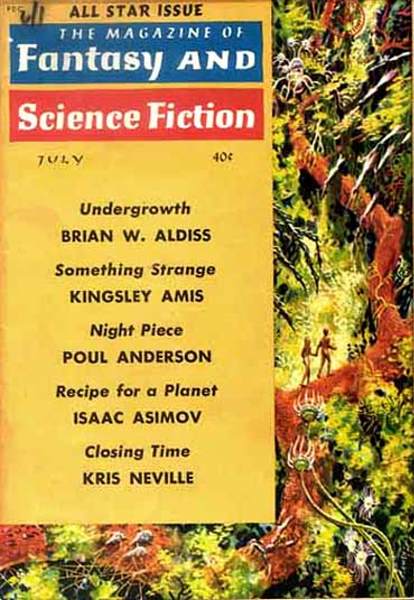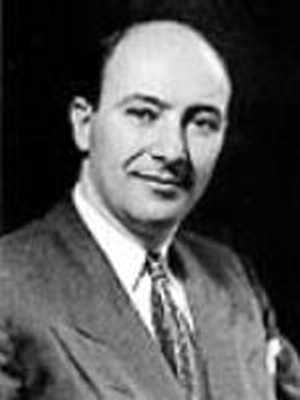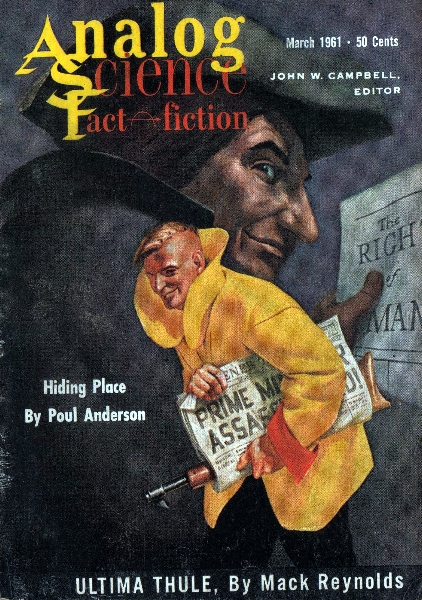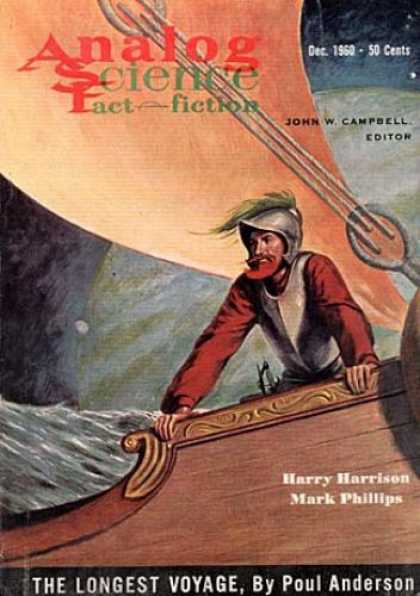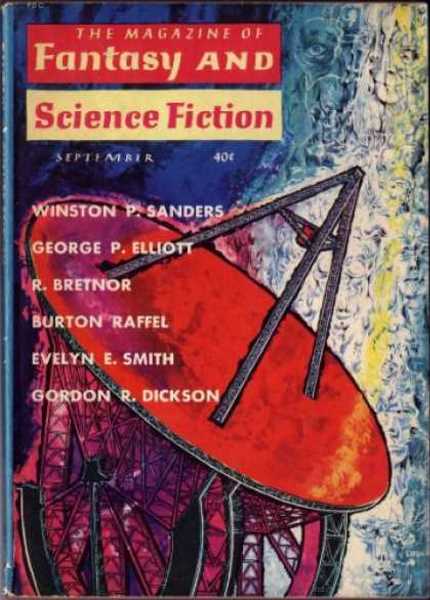
by Gideon Marcus
At the end of a sub-par month, I can generally count on The Magazine and Science Fiction to end things on a positive note. F&SF has been of slightly declining quality over the past few years, but rarely is an issue truly bad, and this one, for January 1962, has got some fine works inside.

Christmas Treason, by Ulsterian peacenik James White, starts things off with a literal bang as a gang of toddler espers attempt to save Christmas with the help of the world's nuclear arsenal. It's nothing I haven't seen Sturgeon do before, but it is charming and effective. Four stars.
Kate Wilhelm has made a name for herself in the past several years, being a regular contributor to many science fiction magazines, Sadly, A Time to Keep, about a fellow with a pathological aversion to doorways, does not make much sense. Not one of her better tales. Two stars.
Every so often, some wag will write a "clever" piece on the need to send girls to service man astronauts on the long journeys to Mars. Jay Williams' Interplanetary Sex is the latest, and it's as awful as the rest. Casual reference to rape? Check. Stereotypical portrayal of married couples (henpecked husband and nagging shrew wife)? Check. It's the sort of thing that will provide ample archaeological data on this era 55 years from now, but offers little else in value.
HOWEVER, there are a few paragraphs near the end depicting a sentient cell's mitosis written in florid romance novel style, and it's genuinely funny. You can skip to it…and skip the rest. Two stars.
Maria Russell's The Deer Park appears to be her first story, and it's a fine freshman effort. It effectively (albeit in an often difficult-to-parse manner) depicts a decadent future humanity entrapped in fantasy worlds of individual creation. It's hard to break out of a gilded cage, and the outside world is sometimes no improvement. Three stars.
Ron Goulart's occult detective, Max Kearney, is back in Please Stand By. This time,the private dick has been enlisted by a hapless were-Elephant, the victim (or beneficiary?) of a magic spell. It's a charming story, and Goulart has an excellent talent for writing without exposition. Four stars.
I didn't much care for Asimov's science column this month, The Modern Demonology. The subject of Maxwell's Demon, that metaphorical creature who can trade energetic for lazy atoms across two buckets such that one gets cold and one gets hot, is a good one. However, the Good Doctor than meanders into philosophical territory, positing the existence of an evolutionary equivalent, a "Darwin's Demon," and it's just sort of a muddy mess. Three Stars.
Newcomer Nils T. Peterson is back with Prelude to a Long Walk, a somber short story about a static man in a growing world. Not really science fiction, but memorable all the same. Four stars.
Progress, by Poul Anderson, is a long-awaited sequel to The Sky People, both set in a post-apocalyptic future in which several nations of the world struggle toward modern civilization. They are hampered both by a critical lack of resources, fossil fuels and metals, but also a fear of duplicating the catastrophe that threw them into a new Stone Age.
Our heroes are once again representatives of the Polynesian Federation, if not the most technically advanced, probably the most progressive socially. Ranu Makintairu and Alisabeta Kanukauai make charming protagonists, but Progress reads like a watered down vignette of Miller's Canticle for Leibowitz. It also has that smugly superior tone I associate with Analog. Three stars.
The issue wraps up with a inconsequential poem, To the Stars by heretofore unknown James Spencer. To discuss it further would take more words than Mr. Spencer wrote. Two stars.

That wraps up magazines for this month, and boy is there a lot to compare! F&SF was the clear winner, clocking in at 3.1 stars. IF was number #2 at 2.9. Cele Goldsmith's mags, Fantastic and Amazing tied at 2.5 stars, and Analog finished at a dismal 2.3 stars.
Each of the mags, save for Amazing, had at least one 4-star story in it. I give the nod for best piece to Piper's Naudsonce, though Christmas Treason is close. Out of 28 pieces of fiction, a scant two were written by women (and if we're just including the Big Three, as I have in the past, then the ratio is still bad: two out of eighteen). On the other hand, two of the five magazines were edited by a Ms. Goldsmith, so there's something.
Next up, Ms. Benton reviews the latest Blish novel!




